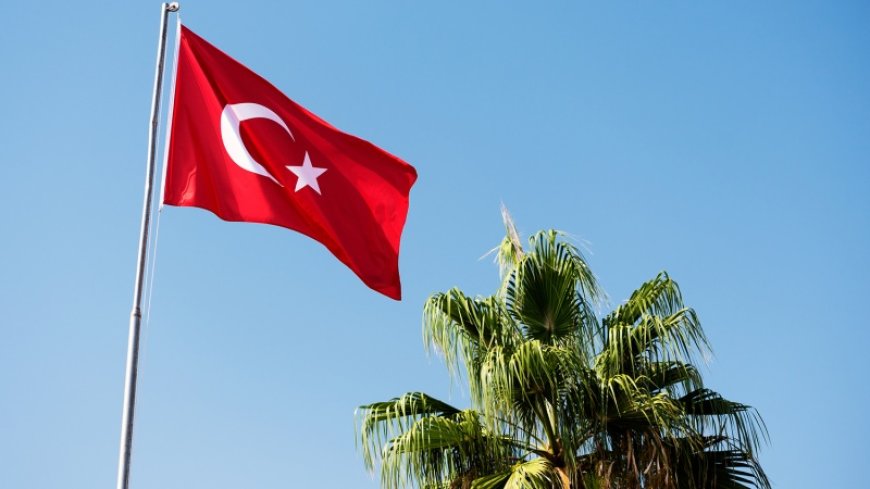Turkey's Militarization Fund: Nationalism, Exclusion, and the Weaponization of Identity
A fresh campaign aiming at Turkish citizens funding their defense industry is in progress in Turkey.

A fresh campaign aiming at Turkish citizens funding their defense industry is in progress in Turkey. The "Justice and Development" Party (AKP) administration is suggesting a divisive measure meant to generate around $2 billion yearly for the defense sector of the country. Although this proposal's financial component is important, the aggressive rhetoric behind it is what has sparked indignation and generated serious questions about Turkey's increasing nationalism and its disturbing consequences.
Promoting the measure, Mustafa Destici, the head of the Great Unity Party (BBP), an ally of the AKP, made explosive comments that essentially weaponized national identity to humiliate anyone who challenge it. "He who does not pay is Greek, he is Armenian," he said, stressing opposition as a betrayal of the Turkish state. This kind of discourse exposes ingrained prejudices in Turkey's political scene, where historical minority groups like Armenians and Greeks—who have been exploited as scapegoats to fan nationalist fervor—are often attacked. It is a demand for political fealty cloaked in discrimination, not only for money support.
Both individuals and businesses would be subject to required payments under this proposed law, including a 750-lira ($22) tax for everyone with a credit card limit more than 100,000 lira ($2,914). These monies are meant to be directed toward Turkey's expanding defense sector. Turkey has been quickly increasing its military capacity in recent years, both to demonstrate its regional status and to tackle supposed threats on several fronts, from Syria to the Eastern Mediterranean, therefore it is not a single deliberate decision.
Still, the fundamental problem is the political and social compulsion this idea embodies. Destici went further to imply that failure to pay these fees not only results in disloyalty but also associates one with the pro-Kurdish Democratic Party (HDP), which is sometimes vilified by the government. Destici's message is unambiguous: either embrace the military-industrial complex or come under official enemy of the state designation.
This rhetoric plays on a risky tendency in Turkish politics whereby militarism, nationalism, and exclusion are progressively entwined. Minorities with long and complicated histories in Turkey, Armenians and Greeks, are once more being denigrated, therefore sustaining a centuries-old cycle of prejudice. Invoking these organizations to mobilize support for the measure, the government is feeding nationalism, divisiveness, and a "us against them" narrative by so doing. Populist regimes all over have employed this strategy, and Turkey's government seems to be following suit by using fear and identity politics to gain political control.
Turkey's militarization is not only a local matter; it also fits a bigger global agenda. From military incursions in Syria to naval battles in the Mediterranean with Greece and Cyprus over disputed areas, the nation has forcefully pushed itself in regional crises in recent years. These aspirations clearly relate to the need to strengthen the defense sector as Turkey wants to confirm its place as a significant actor on the world scene.
With a stated 135 billion lira in income last year alone, the Turkish defense sector has definitely grown dramatically. Nevertheless, the proposed measure begs difficult issues regarding the objectives of a government with economic difficulties including inflation and unemployment. Rather than attending to the urgent needs of the Turkish people—such as social welfare and economic stability—the emphasis is on strengthening the military, a decision many detractors contend serves the interests of the governing class rather than the larger populace.
Furthermore, since the required payments are linked to real estate purchases and even basic notarization services, the measure appears to unfairly tax the middle and working classes. These extra payments would be especially appreciated for common people suffering with the financial consequences of inflation and a devalued lira. Still, resistance to the measure is being presented as a betrayal of the country rather than as a reasonable economic issue.
The way this idea links dissent to ethnic identity and criminalizes it is particularly unsettling. Not just provocative, but also an attack on the very fabric of a varied society, the implication that people who refuse to pay are somehow connected with Armenia or Greece—long considered as historical foes of Turkey—is not only offensive. Under the cover of nationalism, it is an attempt to fan separation, alienate minority groups, and silence detractors of government policy.
Under President Recep Tayyip Erdoğan, Turkey's path has been progressively authoritarian, with crackdowns on free expression, a damaged court system, and forceful political opposition repression. Still another step in solidifying control, the proposed military spending bill uses militarization and nationalism as means of silencing of opposition. Turkey's democratic institutions and the structure of the country could suffer greatly as it keeps down this road.
Not only inside Turkey but also around the world, this most recent event should cause concerns. Focusing mostly on strategic alliances and military cooperation, Western countries—many of whom are NATO allies of Turkey—have mainly been quiet on Ankara's concerning internal policies. Long-term stability of the area is at danger, though, as Turkey gets more militaristic and its policies more exclusive.
The proposed law and the contentious rhetoric accompanying it go beyond simply a financial hardship for Turkish people. With the weight of ethnic and political exclusion added, they show a more general movement toward militarism and authoritarianism. This is a perilous road that would probably widen social gaps and alienate already underprivileged people even more. In a time when many Western countries assert to support democratic norms and human rights, it is imperative to examine the alarming patterns developing in Turkey and weigh the consequences for both internal and international security.













































